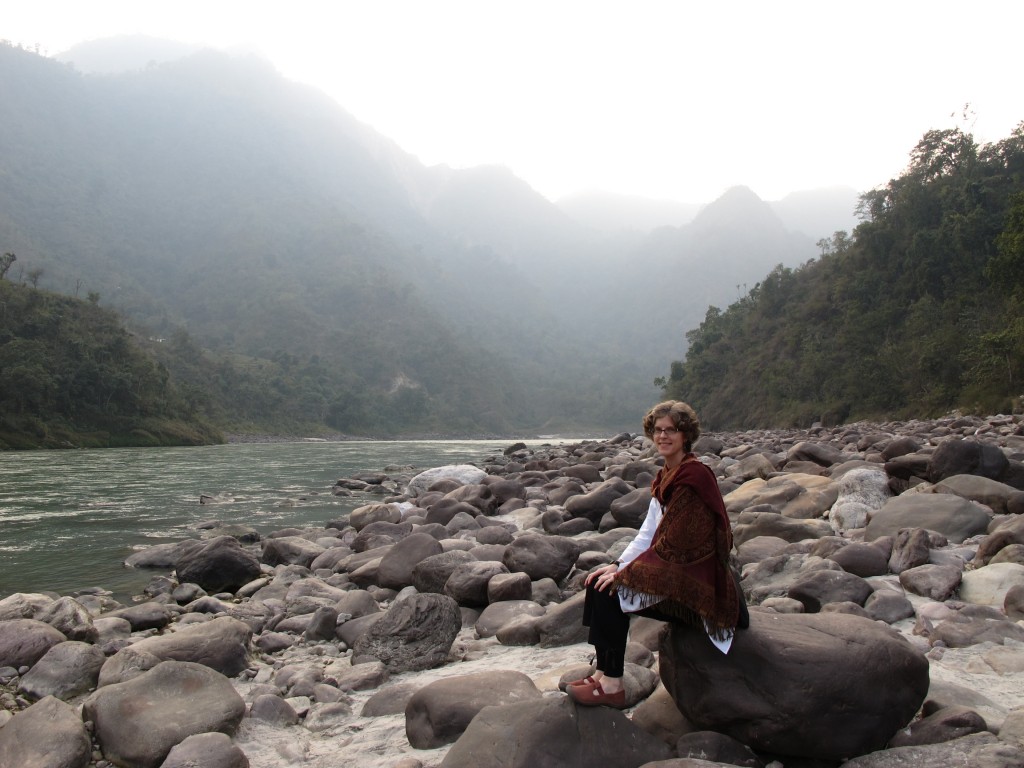We travel. We oversleep. We never get to sleep. We get caught up in emergencies. We get caught up in other pleasures. We get tangled in others’ schedules, lives, and choices. We make choices, and sometimes these include the choice not to meditate.
And then we return. We sit; we draw our attention inward; we relax our bodies; we find our breath; we come home.
For many of us, this is the season of returning. We visit home after a year of absence or see friends we haven’t seen in a while. We return to physical spaces and to relationships from which we’ve had time off. Often, especially when we visit family, we lapse back into old patterns, but despite this, we always return home different. We have changed.
Yoga science/philosophy handles this concept of change in a really interesting way. One of the sources of our unhappiness is being caught up in the cycle of causation; we see things arise and perish, come and go, and we believe that this is the basic structure of reality. But yoga philosophy says that this assumption is based on an illusion; not all is impermanent. What’s most interesting is that it is through meditation that we come into contact with this thing that is permanent.
Swami Rama of the Himalayas says this:
There is a source that you cannot see with the mind. At some moment you will learn to leave behind body consciousness, breath consciousness, sense consciousness, mind consciousness—and finally go beyond all of them. At such a moment, you no longer identify yourself with the objects of your mind or the objects of the world. That moment reveals a state of equilibrium, of tranquility. In that state you become the inner witness, not through some internal self-effort, but because that is who you are. (“4 Ways to Improve Your Meditation,” Yoga International)
Meditation is this act of “coming back” to the space of the witness. It is like taking a journey, with that still center the destination. Along the way and as we practice, we have to encounter thoughts and feelings from our unconscious. Swami Rama goes on to say, “Your thoughts are not mere thoughts; they are people—identities within you. You are a world in yourself. You are a universe, and all your thoughts are people.” People. Like your mom. Like the kid who knocked you into the lockers in high school. Like the person you were yesterday.
Just like family members, these thoughts can be huge distractions; they arise and we get lost in memory or imagination. But our past practice helps us. In meditation, we know to allow these thoughts to arise and pass; in meditation, we take the position of the witness; we consciously choose to take note of passing thoughts without engagement or judgement or we turn away, depending on how useful they are to our lives off of our meditation seat. Then, as we go about our days and go on vacation and meet distractions, we remember, and we allow or don’t allow our choices to be influenced by past patterns and choices.
As meditators, we also know—or have experienced the hint of—moving beyond the flow of thoughts and moving into an experience of stillness, of silence. It can be at once an experience of great comfort and great exhilaration. And this can be the great motivator to return to the practice, if we allow it.
For once you have tasted flight, you will walk with your eyes turned skywards, for there you have been and there you will long to return. ~ Leonardo da Vinci
You can follow any responses to this entry through the RSS 2.0 Both comments and pings are currently closed.


